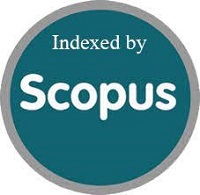The Effects of Student’s Attitudes and Self-Efficacy on Science Achievement
DOI:
https://doi.org/10.15408/jp3i.v9i1.14490Keywords:
science achievement, prestasi belajar sains, sikap terhadap sains, efikasi diri, TIMSS, analisis jalur (path analysis) attitude towards science, self-efficacy, path analysisAbstract
Abstract
One of the critical subjects in school that needs to be assessed is a science subject. Without a science subject, students cannot observe and understand a phenomenon on earth. However, results from an international study such as Trends International in Mathematics and Science (TIMSS), students in Indonesia performed poorly compared to students from another country. Furthermore, science is one of the essential education for children as it included in the STEM Education (Science, Technology, Engineering and Mathematics). From some empirical evidence, student’s attitude and self-efficacy (beliefs about their ability and skill) were found to be dominant predictors of student’s achievement, not excluded, science achievement. However, most of the research analyses the data under conventional regression analysis. Instead of under the structural modelling, and so the results can be considered carefully. This research will analyze a science achievement of Indonesian cohort, and the predictors would be self-efficacy, student’s attitudes toward science, school and teaching. Five hundred seventy-six data of students would be examined path analysis to answer the research questions. The results were found that both student’s attitude and self-efficacy had a significant direct role in determining student achievement in science. To be specific, attitude towards science had the most significant impact on science achievement, over self-efficacy. However, interestingly, the pattern of the effect from those predictors was different toward Science achievement. The practical aspects of the results of this study will be discussed in the discussion section.
Abstrak
Salah satu mata pelajaran penting di sekolah yang perlu dinilai adalah mata pelajaran sains. Tanpa mata pelajaran sains, siswa tidak dapat mengamati dan memahami fenomena di bumi. Namun, hasil dari studi internasional seperti Trends International in Mathematics and Science (TIMSS), prestasi sains siswa di Indonesia lebih rendah dibandingkan dengan siswa dari negara lain. Selanjutnya, sains adalah salah satu Pendidikan yang penting untuk anak-anak karena termasuk dalam Pendidikan STEM (Science, Technology, Engineering and Mathematics). Dari beberapa penelitian, sikap dan efikasi diri siswa (kepercayaan tentang kemampuan dan keterampilan mereka) ditemukan sebagai prediktor yang dominan terhadap prestasi siswa, tidak terkecuali, prestasi sains. Namun, sebagian besar penelitian menganalisis data dengan analisis regresi konvensional. Jika analisis dilakukan dengan model persamaan struktural, maka hasilnya dapat dipertimbangkan dengan hati-hati. Penelitian ini akan menganalisis prestasi sains dari siswa Indonesia, dan prediktornya adalah efikasi diri, sikap siswa terhadap sains, sekolah, dan guru. Lima ratus tujuh puluh enam data siswa akan dianalisis dengan analisis jalur (path analysis) untuk menjawab pertanyaan penelitian. Hasilnya ditemukan bahwa sikap dan efikasi diri siswa memiliki peranan langsung yang signifikan dalam menentukan prestasi siswa dalam mata pelajaran sains. Secara lebih spesifik, sikap terhadap sains memiliki dampak paling signifikan terhadap pencapaian prestasi sains, pengaruh ini lebih besar dibandingkan pengaruh dari efikasi diri. Namun, yang menarik adalah pola pengaruh dari tiap prediktor tersebut berbeda – beda dampaknya terhadap prestasi sains. Aspek praktis dari hasil penelitian ini akan dibahas pada bagian diskusi.
References
Baldwin, J., Ebert-May, D., & Burns, D. (1999). The development of a college biolgy self-efficacy instrument for non-majors. Science Education, 83(4), pp. 397-408.
Bond, T. & Fox, C. (2007). Applying the Rasch model: Fundamental measurement in the human sciences (2nd). Mahwah, NJ: LEA.
Bong, M., & Skaalvik, E.M. (2003). Academic self-concept and self-efficacy: How different are they really? Educational Psychology Review, 15, 1-40.
Britner, S. L., & Pajares, F. (2001). Self-efficacy beliefs, motivation, race, and gender
in middle school science. Journal of Women and Minorities in Science and Engineering, 7,
–285.
Britner, S. L., & Pajares, F. (2001). Self-efficacy beliefs, motivation, race, and gender
in middle school science. Journal of Women and Minorities in Science and Engineering, 7,
–285.
Carey, N., & Shavelson, R. (1988). Outcomes, achievement, participation and attitudes. In R. J Shavelson, L.M. McDonnell, & J. Oakes (Eds.), Indicators for monitoring mathematics and sscience education (pp. 147 – 191). Los Angeles, CA: Rand Corporation.
James Muchwe King’Aru. (2014). Factors contributing to poor performance of science subjects: a case of secondary schools in kawe division, kinondoni municipality. A dissertation. The Open University of Tanzania.
Joo, Y., Bong, M., & Choi, H. (2000). Self-efficacy for self-regulated learning, academic self-efficacy and internet self-efficacy in web-based instruction. Education Technology Research and Development, 48(2), 5-17.
Koballa, T.R., & Glynn, S.M. (2007). Attitudinal and motivational constructs in science learning. In S.K.
Abell & N.G. Lederman (Eds.) Handbook of research on science education (pp. 75-102). Mahwah, NJ: Lawrence Erlbaum Associates.
Pedazhur, E.J., & Kerlinger, F.N. (1982). Multiple regression in behavioural research: Explanation and Prediction. New York: Holt, Rinehart and Winston.
Reynolds, A. J., & Walberg, H. J. (1991). A structural model of science achievement. Journal of Education Psychology, 83(2), 97-107.
Reynolds, A. J., & Walberg, H. J. (1992). A structural model of science achievement and attitude: An extension to high school. Journal of Educational Psychology, 84(3), 371-382.
Schibeci, R.A., & Riley, J.P., Jr. (1986). Influence of students’ background and perceptions on science attitudes and achievement. Journal of Research in Science Teaching, 23, 177–187.
Schruba, A.E. (2008). Evaluation of student attitude toward science and self – efficacy in a non-majors college biology course. Thesis, Texas Christian University, Texas.
Simpson, R.D., & Oliver, J.S. (1990). A summary of major influences on attitude toward and achievement in science among adolescent students. Science Education, 74, 1–18.
Thompson, B. (2004). Exploratory and confirmatory factor analysis: Understanding concepts and applications. Washington, DC, US: American Psychological Association.
Redish, E.F., Saul, J.M., & Steinberg, R.N. (1998). Student expectations in introductory physics. American Journal of Physics, 66(3), 212-224.
Zeldin, A.L., Britner, S.L., & Pajares, F. (in press). A comparative study of self-efficacy beliefs of successful men and women in mathematics, science, and technology careers.



